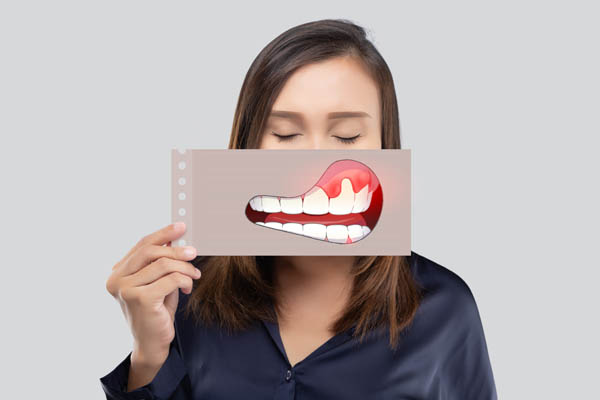How Periodontics Can Help Take Care of Your Gums

Periodontics is a branch of dentistry that focuses on issues that affect your gums. Taking care of your gums is just as important as taking care of your teeth. Gums help keep the teeth stable in their sockets, and gum disease is linked to serious health issues, like diabetes, heart disease, respiratory problems, and stroke.
Failing to take good care of your gums can lead to teeth becoming loose or falling out of their socket. It can also lead to the bone structures that support teeth being permanently damaged. Fortunately, periodontics uses treatments like teeth cleanings and deep cleanings to keep your gum tissues disease-free.
Keep your gums healthy with periodontics
Brushing twice daily and flossing once each day helps keep teeth and gum tissues healthy. Flossing helps get rid of plaque buildup around the gum line, reducing the risk of gum tissues becoming infected. It also helps stimulate gum tissues. An antibacterial mouthwash provides an additional layer of protection for gum tissues because it reduces bacteria in the mouth.
How periodontics protects your gums
Periodontics primarily focuses on the prevention, diagnosis, and treatment of gum disease. Gum disease is a chronic infection of gum tissues that leads to inflammation and irritation. Over time, this inflammation leads to symptoms like receding gums, which leaves teeth roots exposed to acids in the mouth. It also damages the bone and tissue structures that keep teeth in place.
The early stage is called gingivitis, and it can be reversed with improved oral hygiene and teeth cleaning. The more advanced stage is called periodontitis, and it cannot be reversed. However, periodontic treatment can be used to manage and treat the damage caused by the condition. Treatments used to prevent and treat gum disease include the following.
Teeth cleaning
The American Dental Association recommends having teeth cleaned at least two times per year. These treatments are used to remove tartar and plaque from teeth surfaces and the patient’s gumline. It helps prevent tooth decay and gum disease, and it can be used to treat gingivitis.
Deep cleaning
This type of teeth cleaning that involves removing tartar and plaque from teeth surfaces and their roots. The patient’s gums are pulled back so the roots of their teeth can be reached. The procedure can be performed with metal tools or a laser.
Gum grafts
Gum grafts can be used to repair damage done to gum tissues in the mouth. For example, receding gums can be treated by covering up exposed teeth roots with grafted gum tissues.
Bone grafts
Bone grafts are used to repair damage to bone structures that have been damaged by gum disease. It can help stabilize loose teeth or thicken a patient’s jawbone so a lost tooth can be replaced with a dental implant.
Explore periodontics
Give us a call or visit our Huntsville clinic to learn more about periodontics and how it can help to prevent and treat gum disease.
Request an appointment here: https://balmoraldentalcenter.com or call Balmoral Dental Center at (256) 429-3870 for an appointment in our Huntsville office.
Check out what others are saying about our dental services on Yelp: Periodontal Test in Huntsville, AL.
Related Posts
Periodontics focuses on issues that affect the gum tissues. Periodontic dentists spend much of their time addressing issues like gum disease. Gum health is closely linked to overall health because according to Healthline, gum disease is linked to health problems like heart disease, lung disease, and diabetes.Healthy gums protect your overall health, and they can…
Periodontics care is specialized dental care for treating and preventing periodontal disease from reappearing. Scaling and root planing may be performed on patients with periodontal disease to eliminate bacterial plaque and other toxins. Gum disease-causing bacteria can reappear three to four months after initial treatment. As a result, the dentist will recommend coming for cleanings…
Periodontal disease is the leading cause of adult tooth loss. It is caused by bacteria in the mouth infecting gum tissues. This occurs when plaque and tartar make their way below the gumline. Plaque is the sticky film that makes your mouth sticky when you get up in the morning or after a nap. Brushing…
According to the American Academy of Periodontology, periodontics is a dental specialty that focuses on the prevention, diagnosis, and treatment of gum disease. When periodontal disease (also known as gum disease) develops, usually because of poor oral hygiene practices, the harm is not just to your gums but also to your general health. Continue reading…


